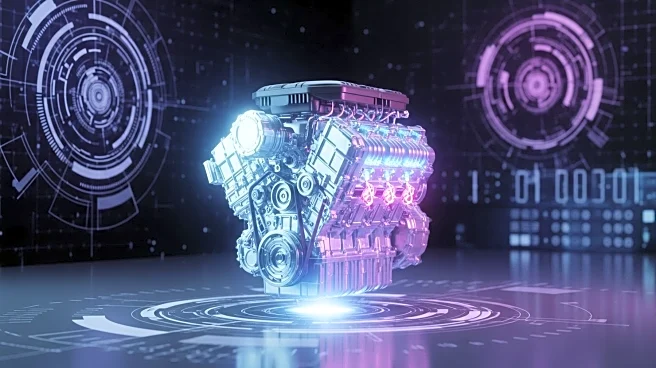What's Happening?
Meta has disclosed technical details of its new Horizon Engine, designed to replace Unity in Horizon Worlds and Quest's Immersive Home. Announced at Connect 2025, the engine promises faster world loading and supports over 100 users in a single instance. Horizon Engine scales from high-end cloud rendering to mobile phones, enabling expansive environments and crowds of live avatars. It features a robust asset pipeline, spatialized audio, and advanced rendering capabilities. The engine aims to improve performance, graphics, and ease of creation, supporting Meta's vision for a more immersive metaverse experience.
Why It's Important?
The introduction of Horizon Engine marks a pivotal moment for Meta's metaverse ambitions, potentially enhancing user experience and engagement. By offering faster loading times and supporting large user groups, the engine could attract more developers and users to Horizon Worlds. This development positions Meta to compete with other platforms like Fortnite and Roblox, driving innovation in virtual reality and social interaction. As the metaverse concept gains traction, Horizon Engine could play a key role in shaping its future, impacting entertainment, social networking, and digital commerce.
What's Next?
Meta plans to expand Horizon Engine's capabilities, potentially moving to native rendering on mobile devices for improved responsiveness. As the engine becomes more widely adopted, we can expect further enhancements in virtual environments and user interactions. Meta's focus on optimizing the metaverse experience suggests ongoing investment in technology development, with potential collaborations and partnerships to drive growth.
Beyond the Headlines
The evolution of Horizon Engine raises questions about the ethical implications of the metaverse, including privacy, data security, and digital identity. As virtual worlds become more integrated into daily life, addressing these concerns will be crucial to ensure safe and responsible use.









